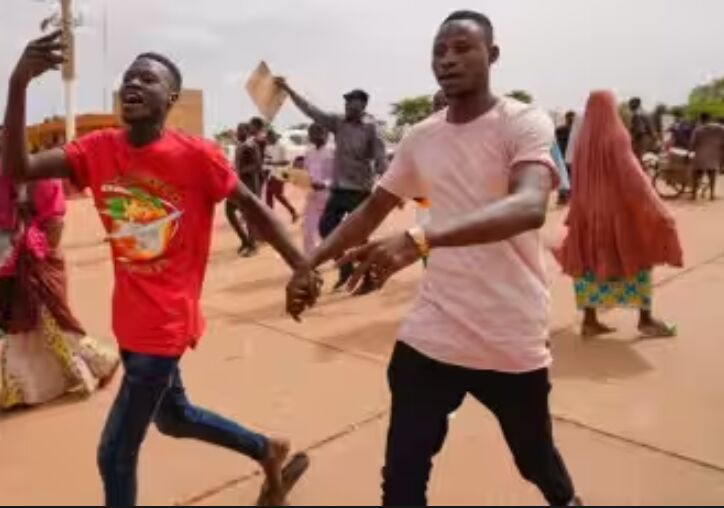Sahel on the Boil ; ECOWAS Urged to Pursue Peaceful Solutions as Deadline Looms for Niger's Ousted President
The West African regional bloc, ECOWAS, faces appeals for peaceful solutions as Niger's military junta deadline looms. Neighboring Nigeria's Senate urges exploring alternatives to military intervention. The coup adds complexity to the Sahel region's already pressing issues. Nigerians express support for coup leaders and defiance against threats. United States and allies see a blow to counterterrorism efforts. Uncertainty and economic sanctions worsen daily struggles for the impoverished population. Concerns arise about military intervention's ability to address underlying issues.
The West Africa regional bloc, ECOWAS, is facing appeals to pursue more peaceful means as the deadline arrives for Niger's military junta to reinstate the country's ousted president. Despite ECOWAS's threat of military intervention, neighboring Nigeria's Senate has urged the bloc to explore other options.
The coup in Niger, which took place on July 26, has added complexity to the Sahel region, which is already grappling with military takeovers, spreading extremism, and a shift towards Russia and its proxy, the Wagner mercenary group.
The ousted president, Mohamed Bazoum, claims to be held hostage by the mutinous soldiers. Algeria and Chad, non-ECOWAS neighbors with strong militaries, have expressed opposition to the use of force, while neighboring Mali and Burkina Faso have warned that an intervention would be a declaration of war against them.
The response from ECOWAS remains unclear, but thousands of people in Niger's capital, Niamey, have expressed support for the coup leaders and defiance against the threats from ECOWAS and France. The coup poses a significant blow to the United States and its allies, who viewed Niger as a crucial counterterrorism partner in the Sahel.
The United States, France, and European countries have invested substantial military assistance in Niger, but the fate of their soldiers in the country now hangs in the balance.
While Niger's coup leaders claim the coup was a response to growing insecurity, conflict incidents have actually decreased in the country. However, uncertainty and rising food prices due to economic sanctions imposed by ECOWAS are exacerbating the daily lives of Niger's population, many of whom live in poverty.
Humanitarian groups have warned of devastating effects on the millions of people in need of aid. Some residents have expressed concerns about military intervention, stating that it will not fix the issues they face in their everyday lives.




